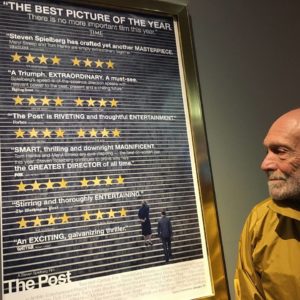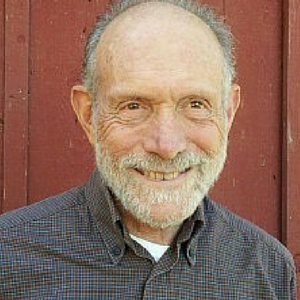For full disclosure: I’m a long-term friend of Dan and Patricia Ellsberg, and I was a more distant friend but also admirer of Ben Bagdikian. I lived through the era depicted in The Post, and since I see very few movies I tend to have strong reactions to those I do.
That said, I had a very strong, very positive reaction to this Stephen Spielberg film about the decision by Katherine Graham (Meryl Streep), supported by her editor Ben Bradlee (Tom Hanks), to publish the devastating “Pentagon Papers” in 1971. I cannot remember being so engrossed in a movie, and while it was not as transcendentally inspiring perhaps as Richard Attenborough’s Gandhi, it was uplifting and spell-binding for me. It depicts a “finest hour” of American democracy, which itself would make it more than relevant to our America’s present dismal time; add to this, however, the superb treatment of the women’s issue and the just plain great acting.

Advisory: If you go in expecting the film to be about Ellsberg and his struggle with himself to risk everything to release the devastating news to the public, or the role Patricia played in supporting him, you will be disappointed. That story is in the superb documentary by Judith Ehrlich, “The Most Dangerous Man in America,” as well as Dan’s book Secrets and many other histories. The mark of a great filmmaker (or novelist, for that matter) is to have the restraint to tell one story at a time. I appreciate that enormously, as one who has yet to find that kind of restraint.
Now for the Metta Center angle: What does the film say about nonviolence? A lot. First of all, how raw courage and the power of that act of will by which a man or woman, seeing beyond the ordinary vision of personal gain and loss, decides to risk even perhaps their life for a higher cause. In Dan’s case, his career and his very freedom, e.g. to be with the wife he loved. In Ms. Graham’s case, the paper she loved and lived for, along with the rebuttal of the stereotype against women that they can’t compete in the “real world” of business or places of cutthroat competition.
Then there’s the glimpse it offers of what Johan Galtung named the “Great Chain of Nonviolence:” the way people low on the social/political ladder, seemingly without access to power, can reach the seats of the mighty through those near them, who know others on up the chain. In this case, the spectrum goes from street protestors (as I was) to an insider like Dan who “saw the light” (itself a lesson in the humanity and convertibility of our opponents) to the upper echelons of journalism and government. Then, a larger lesson of the more sobering type. Would a whistle-blower on that scale enjoy the protection of the Supreme Court today? What must we do to capitalize on these moments of brilliant courage to make sure they ratchet up to a permanent and beneficial change?








